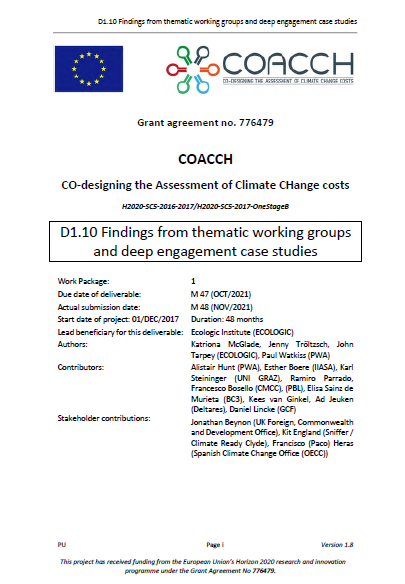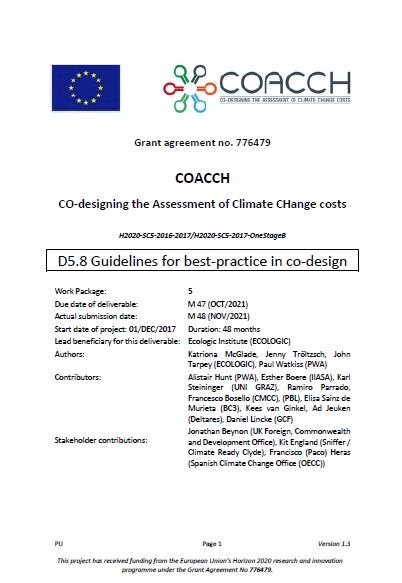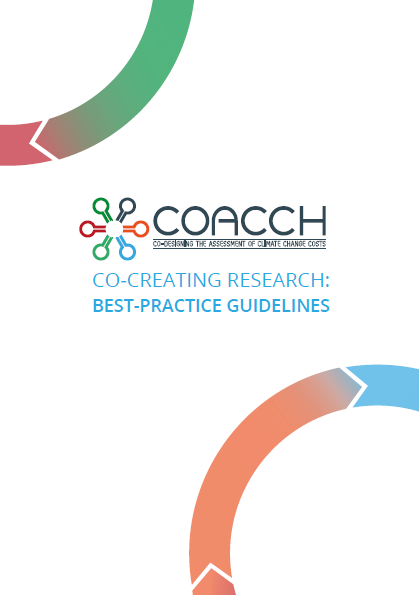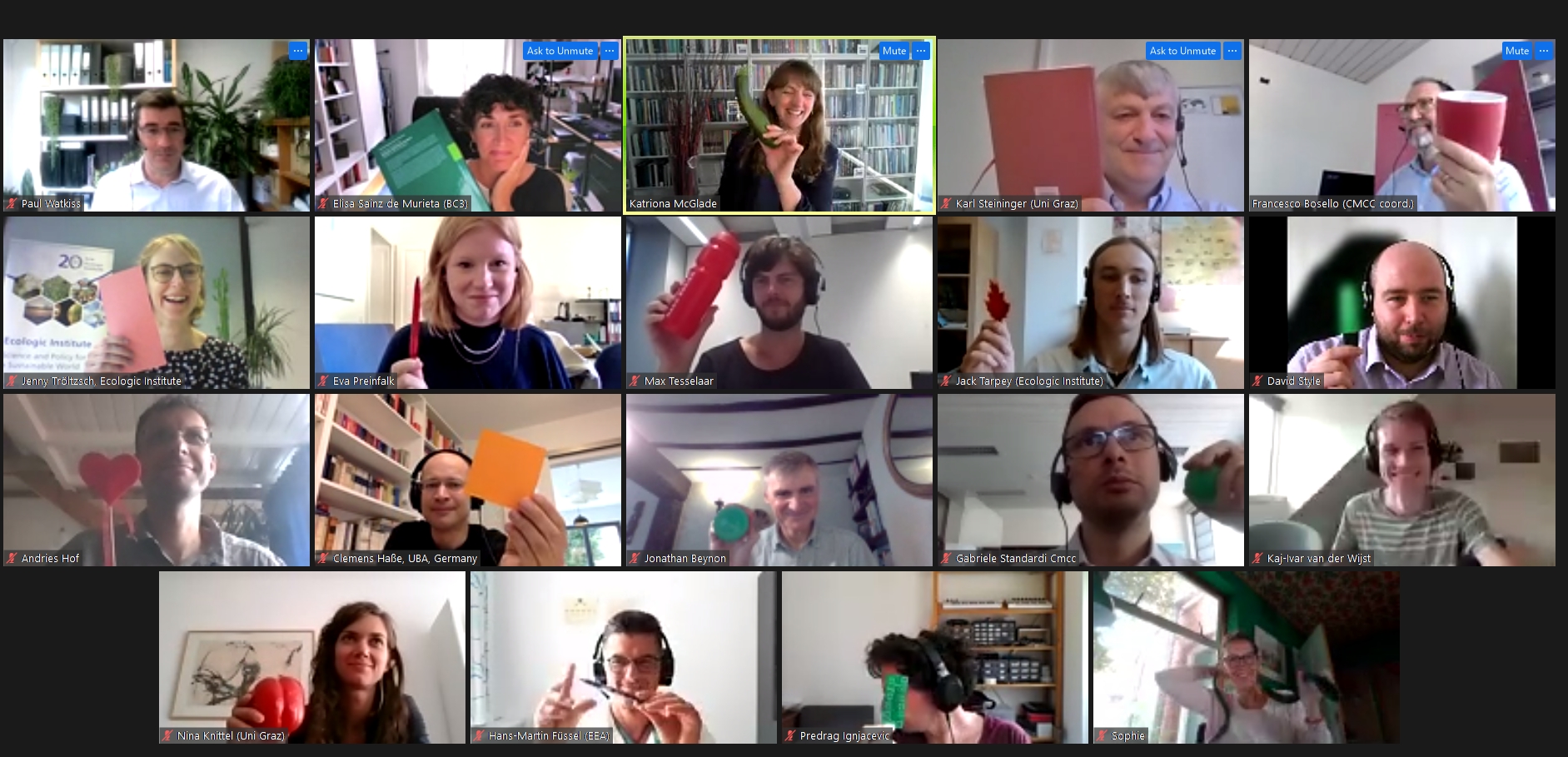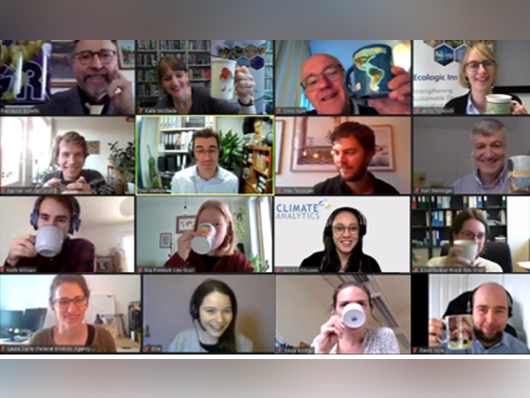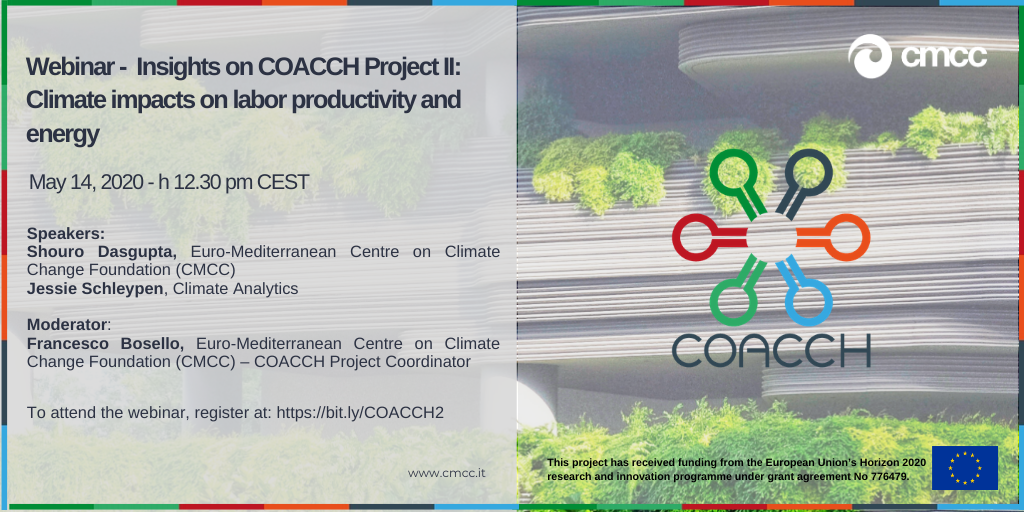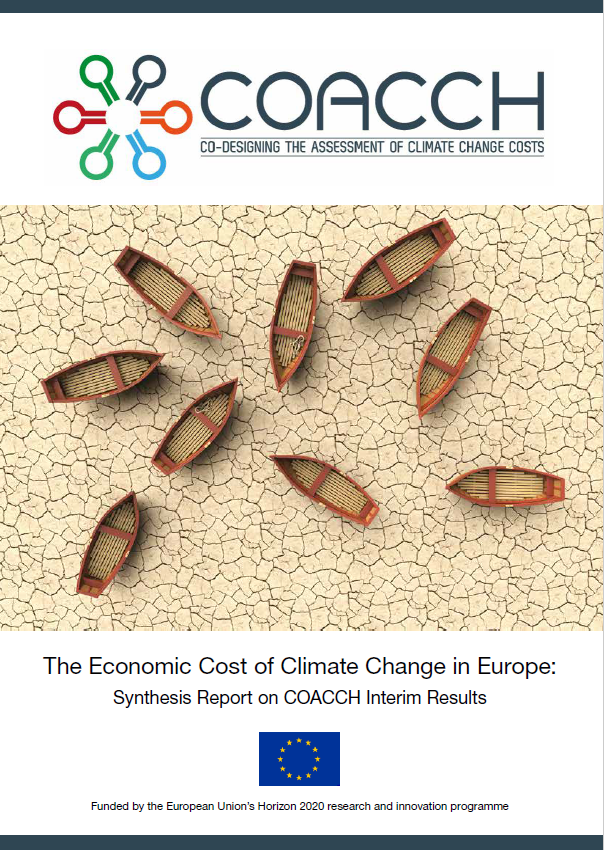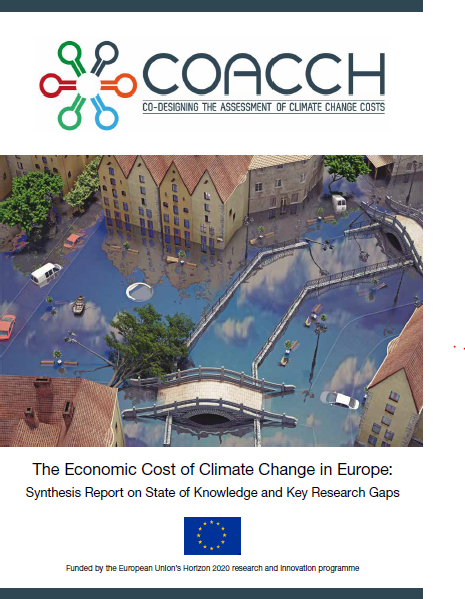On 17 May 2018, research partners and stakeholders from the COACCH (CO-designing the Assessment of Climate CHange costs) project met in Brussels for the first interactive co-design workshop. Ecologic Institute was responsible for designing the interactive workshop concept and for producing the synthesis of the current knowledge on climate change costs and research gaps, a copy is available for download. The key findings were presented by Ecologic Institute Fellow Jenny Tröltzsch and project partner Paul Watkiss.
This collaborative workshop brought together over 40 participants to form working groups that will meet annually over the next three years to guide the project's activities and ensure its outputs have practical relevance. The aim is to build a strong community of practice over the course of the project, sharing interests, shaping cutting-edge research and producing joint-knowledge products. The objectives of the workshop were to:
- Identify information needs and the potential uses of COACCH project results.
- Discuss key project research questions on the economics of climate change, tipping points and policy responses.
- Discuss and agree on the process for collaboration, including goals, outcomes, roles and responsibilities.
- Identify a set of joint products (outputs) to work towards.
To reach these objectives, the day was divided into four working sessions covering:
- the co-design process;
- current knowledge on climate change costs as well as gaps and scenarios the project could focus on;
- priorities related to economic analysis of biophysical tipping points and possible socio-economic tipping points; and finally
- joint-knowledge products and the co-dissemination process.
The prepared synthesis paper summarizes the current knowledge on climate change costs and research gaps, published at the COACCH webpage.
The COACCH project aims to improve the downscaled assessment of the risks and costs of climate change in Europe. A key focus is to work together with end users to shape results that are directly useable by research, civil society, business, investment and policy.




